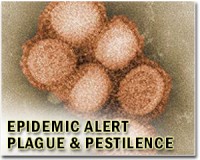| . |  |
. |
Johannesburg (AFP) Feb 2, 2011 South African children as young as 12 will from next month be able to test for HIV at school in a new plan to curb the virus that has been met with mixed feelings. The government says the campaign will allow early treatment in a country with the world's highest AIDS infection rate but some activists fear it will pressurise children to test, once the campaign is rolled out in March. "It must be approached with a great deal of caution. The push to curb the spread of HIV must not infringe on childrens' right to privacy," Joanne van Niekerk, the director of Childline, told AFP. "Having testing facilities in schools may also result in undue pressure from parents to get their children tested." South Africa battles a high teenage pregnancy rate, with one school reporting at least 50 pregnancies this year, with pictures of heavily pregnant school girls in uniforms often splashed across media. The voluntary HIV Counselling and Testing (HCT) initiative has been hailed by Lovelife, a government funded HIV prevention project aimed at teenagers, who believe that early testing will increase AIDS awareness. "Children are already having sex at a very young age and the large number of teenage pregnancies shows that they are not using protection," said Scott Burnett, the organisation's Youth Programmes director. He said different surveys had indicated that children in South Africa started having sex at around 13-14 years of age. "If we are serious about fighting HIV, it is important that everyone stands up and be tested," Burnett told AFP. According to the department of health, the campaign will be phased in at carefully selected schools and districts. The coastal provinces of KwaZulu Natal and the Eastern Cape which have the highest HIV infections in the country are likely to be the first to beneficiaries of the programme. Fears abound that young children barely in their teens would be forced to undergo testing. Under the country's Children's Act, children have the right to consent to HIV testing at the age of 12. "The role of the parents must be clear, as to who gives consent for the test. Children must not be coerced by teachers or parents into testing," said Jonathan Berger, a researcher with the AIDS Law Project. "It is no secret that school children are having sex, that puts them at risk of contracting HIV." The health ministry, which wants 15 million South Africans to undergo HIV tests by mid-year, says they will be targeting teenagers. "What has been said so far is that the campaign is not looking at your typical seven, eight or nine-year-old primary school learner," it said. South Africa has 5.6 million people who are HIV-positive out of a 50-million population, according to UN estimates. In December the government said a million people were now receiving anti-AIDS drugs, in what is said to be the largest therapy programme in the world. The national students body, the Congress of South African Students (Cosas) has rejected the plan, charging that schools should not be turned into medical facilities. "You cannot expect a learner to go for such a life changing test and then go back to class as if nothing happened," said Cosas president Bongani Mani. "Serious medical tests such as HIV and AIDS should be done outside the school," said Mani. Cabinet has welcomed the plan and has assured parents that the campaign will be done by professional medical staff and counsellors who will offer pre- and post-testing pychosocial support. "Parents must be assured that care will be taken to ensure that the testing is done in a professional and responsible manner," it said in a statement. "We urge all learners and teachers to participate."
Share This Article With Planet Earth
Related Links Epidemics on Earth - Bird Flu, HIV/AIDS, Ebola
 Flu: Drugs stockpile an option for rich countries, not poor
Flu: Drugs stockpile an option for rich countries, not poorParis (AFP) Feb 2, 2011 Stockpiling antiviral drugs as a weapon against pandemic flu saves lives but, when measured as a tool for averting economic damage, is an option only open to rich countries, a study published on Wednesday said. Researchers in Singapore compared benefits and disadvantages from stockpiling antivirals such as Tamiflu and Relenza in Brazil, Britain, China, Guatemala, India, Indonesia, New Zealan ... read more |
|
| The content herein, unless otherwise known to be public domain, are Copyright 1995-2010 - SpaceDaily. AFP and UPI Wire Stories are copyright Agence France-Presse and United Press International. ESA Portal Reports are copyright European Space Agency. All NASA sourced material is public domain. Additional copyrights may apply in whole or part to other bona fide parties. Advertising does not imply endorsement,agreement or approval of any opinions, statements or information provided by SpaceDaily on any Web page published or hosted by SpaceDaily. Privacy Statement |